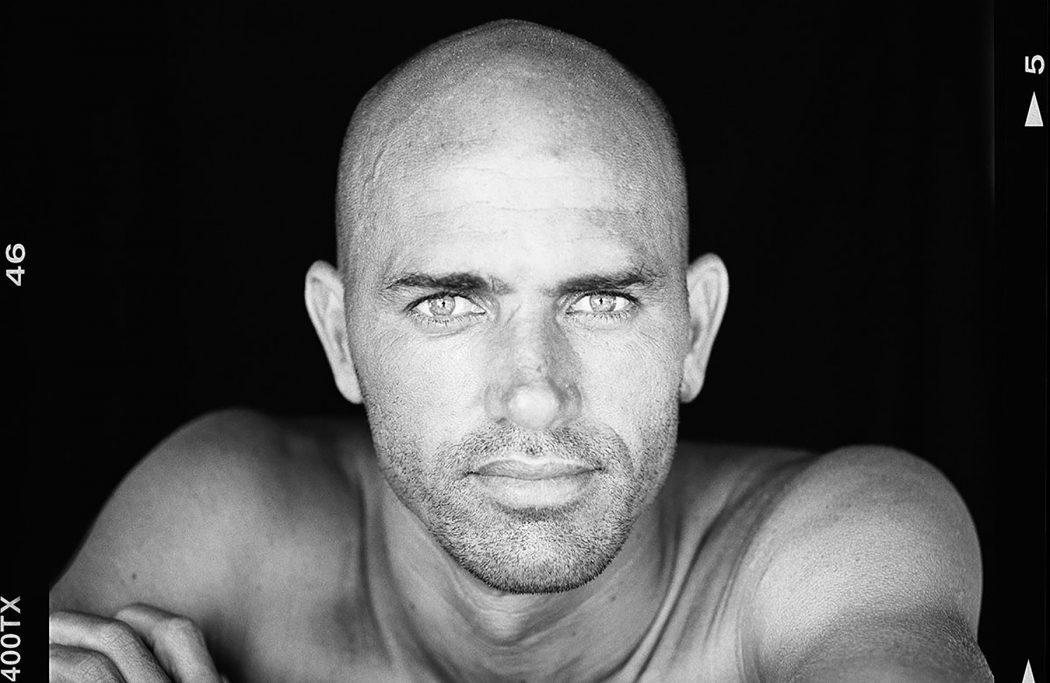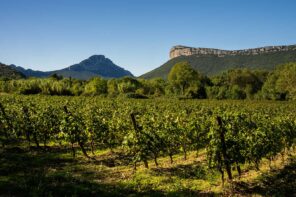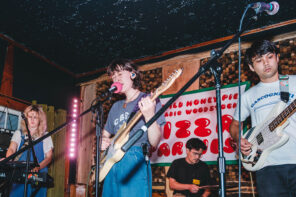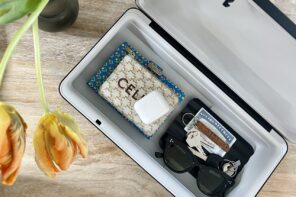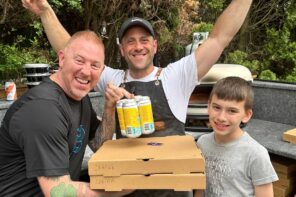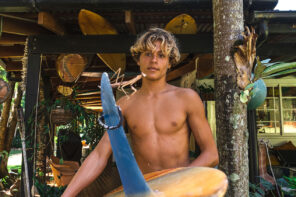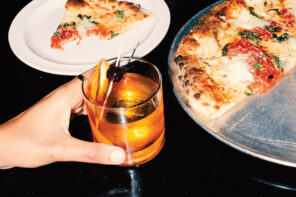Kelly Slater is a better surfer than Ponce de Leon ever was. However, Ponce de Leon did discover and name the state of Florida in 1513, where the 11x world champion is from, so it could be a tie in terms of notable life accomplishments. But the tiebreaker ultimately goes to Mr. Slater because he has been able to discover the location of what eluded Ponce de Leon all his life: the Fountain of Youth.
Before we turn over the specific location of this treasure that Kelly has found to the proper authorities, Whalebone recruited the help of our guest editor for the 2017 Water Issue of Whalebone Magazine, Taylor Steele, to interview his longtime friend on the exact steps needed to find the Fountain. Write this down. It could come in handy.
Taylor Steele: At age 45, how would you say you physically stay young. What’s your biggest tip for staying young?
Kelly Slater: I don’t think there’s any magic thing. I feel it’s a whole lifestyle. It’s your food. It’s your sleep. It’s your stress. All those things. So, I try to eat good food and try not to be overindulgent, you know?
Traveling around the world, having different diets and all that kind of stuff, it’s pretty easy to overindulge in all sorts of things. I try my best not to eat too much sugar. I don’t eat many grains or white flour. Kind of stay away from gluten for the most part. I’m definitely not perfect with my meals, but I also think a good tip is not to eat too many different types of foods together. I would not suggest mixing a lot of different proteins and carbs together. Try to focus on the nutrients.
We eat so much for pleasure and I think if everyone just thought about eating for nutrition, they would eat very differently. It seems many people are worried about getting enough protein, or getting enough this or that in their diet, but I think just simplifying your diet, cutting certain things out that pretty much everyone agrees to are bad, like some of the things I mentioned before. And then just not overeating.
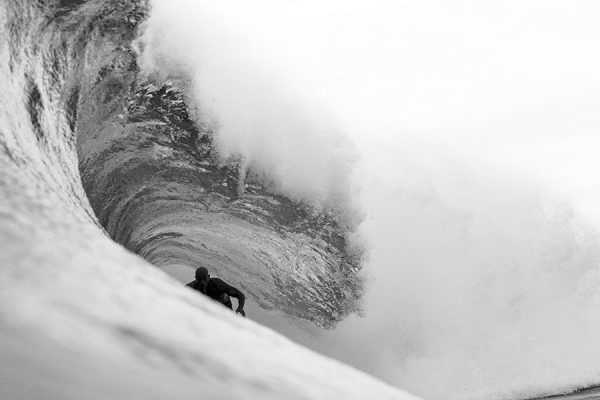
Photo: Todd Glaser
And then you have to get your exercise in. But you know, a lot of studies are saying that if you exercise too much, you kind of run yourself down, and it’s hard to replenish all the things you lose. So diet and working out go kind of hand in hand.
One thing I definitely need to improve on is I have so many fun, exciting, good things going on and fun things to do around the world, and people to be with, but it’s so easy to do a project or go do fun things and not process those experiences emotionally. It’s almost like having a party and not cleaning up. Being busy, I’ve been trying to think about that—have the fun, but then afterward give yourself quiet time to process all the things happening in your life.
TS: I remember hanging out in Australia with you when we were younger, and your diet was completely opposite. Was there any sort of direct reason for that change, or was that slowly learning stuff as you went?
KS: Yeah, there was a reason. I started reading a bunch of books on nutrition in my early mid-20s. Actually, I was at Kai’s (restaurant in Cardiff, CA) eating food one day, by your house, and waiting for my lunch and there was a tape by the counter—a cassette tape for sale for a dollar called Dead Doctor’s Don’t Lie. And I was, like, “Oh, it’s a buck. I’ll buy that, and I’ll just listen to it.” I put it in the car, and just listened to it driving around.
There was also a guy named Dr. Joel Wallach who talked about all the oldest people in the world, and what they had in common. He had done close to 20,000 different autopsies on both people and animals in his lifetime. And he basically said there’s no such thing as dying of old age. You either run out of something, or you catch something that gets out of control. But as far as cancers and heart disease and all these sorts of things, there’s an excuse for it. There’s a reason why you have those things, he went through how a lack of nutrients in most people’s bodies is what causes most health issues—some sort of imbalance. But anyway, I got really into listening to that tape, and that led me to a few different books I read.
And he basically said there’s no such thing as dying of old age. You either run out of something, or you catch something that gets out of control.
I am also a fan of Rickson Gracie and decided to read about Rickson. And inevitably, that led me to his diet, which was a food combined diet, which is also called trophology. And that led me to read about a number things, but the one that became kind of like my bible for a lot of different things in life was called The Tao of Health, Sex, and Longevity by a guy named Daniel Reid. The book goes really deep into food combining, and how you don’t want to have proteins and carbs together. And what effect it has on your body and in your stomach when things digest. You know, digestion happens as soon as you think about food. Digestion is happening because your salivary glands are already processing what it’s expecting to have.
As you get older and you know more people, you find more people who are sick that are in your life. My father passed away from cancer and I’ve actually lost a lot of friends to cancer in the last 15 years. Actually right now, a guy who is like a second dad to me is suffering a brain tumor. So I’ve been studying up. I don’t know, I guess I just sort of found that I have a passion for diet. And that one cassette tape was what led me in that direction, but I guess I already had the desire for that knowledge.
I would say the first person who ever put it in my head was Tom Carroll. Tom mentioned to me when I was 18 about my energy relating to the meal I had eaten the night before, and why I was not so energetic the next day. And I thought it was fascinating that someone knew that. You know, going to public schools and learning the food pyramid, which is a complete farce, I really didn’t know anything about diet and the way the body functioned. And once I started to learn, I thought it was the most fascinating thing in the world.
TS: Where would somebody like myself start to do research on these things? Is there a website or is there anything that you recommend for a “health for dummies” guide?
KS: I would dive straight into that book I said before, The Tao of Health, Sex and Longevity, because it gets into everything around diet, breathing, sex. Just overall health of your mind, body, and spirit.
TS: What’s your theory on sleep? How much sleep do you try to get a night?
KS: When I look back at it, I probably generally get about seven to eight hours of sleep. If my diet’s really clean and good, and I’m not overexerting myself too much each day, I end up sleeping less. For example, when I get into the food combining, I end up sleeping about six hours a night, and I have a ton of energy all day.
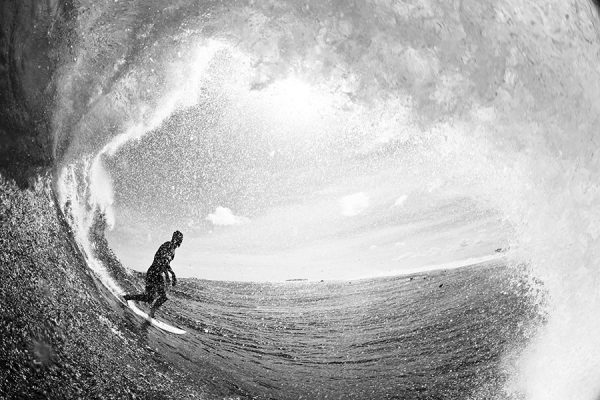
Two weeks in Fiji, Summer 2012. Photo: Todd Glaser
TS: I notice you, Shane Dorian and Rob Machado, three people that I really look up to as far as staying at a peak performance for decades, you guys don’t eat that much in my opinion. Is that part of the theory too?
KS: I don’t eat a lot of food. In fact, I really recommend fasting to people. I think everyone should do gallbladder cleanses, colonics or some sort of fasting or master cleanse at some point. Maybe every year or so. If you think about it, your body never rests its digestive tract. So it’s the one part of your body that literally never gets a break. So I think it’s good once in a while to let it stop working so much.
Almost all the enjoyment I’ve had in my life has come from surfing, and being fit and active. So you kind of got to weigh up your battles in life, and sometimes you want to push yourself and sometimes you want to hold back. And I think for me, especially at my age, I’m thinking I want to surf really well for at least another 20 years. So I think health is important to think about—to educate yourself so you have that control and knowledge about how to fix things that go wrong.
TS: What do you think is the biggest key to being able to do that for yourself? If you’re looking for it, is it only your diet? Is it the way that your approach how active you are per day?
KS: Yes, it’s definitely both those things [diet and activity]. I also think stretching is super key. Of course, strength is important. If you look around, more people focus on strength than flexibility, and I think flexibility is probably more key to staying away from injury.
If you look around, more people focus on strength than flexibility, and I think flexibility is probably more key to staying away from injury.
TS: Do you let your brain have that same sort of fast that you do with your body?
KS: For sure, I try to. But I’m really busy these days with a lot of different projects, and if I don’t keep stimulating (my brain) I get kind of bored. I keeping adding projects on before I realize how much work it’s going to be for me later on, or how much time those things each take. So I think that’s one thing for myself—I’ve probably had a lack of foresight ahead of time on, realistically, how much time and effort I’m going to have each day to put into those, plus travel and tour. To keep myself at a level I need to be—my top level—I probably need to cut things out in my life. You know, to be at 100% with your brain firing in all the right ways and to surf at your top level.
TS: Do you meditate at all to sort of do a quick reset?
KS: I do at night sometimes. Sometimes I do breathing exercises where it’s just like focusing all my attention on the breath and clearing the mind. And other times, I’ll do sort of meditation where I’m literally just thinking positive thoughts about everybody and everything. I’m not a religious person, but almost like a prayer.
I think there’s a way to philosophically understand every person on Earth if your mind is open to it enough, and you have the desire. And I’m exposed to so many people all the time and the more and more I’m around people, the more frustrated I get with people. So I find myself having to figure out how to be more zen and kind of let things go.
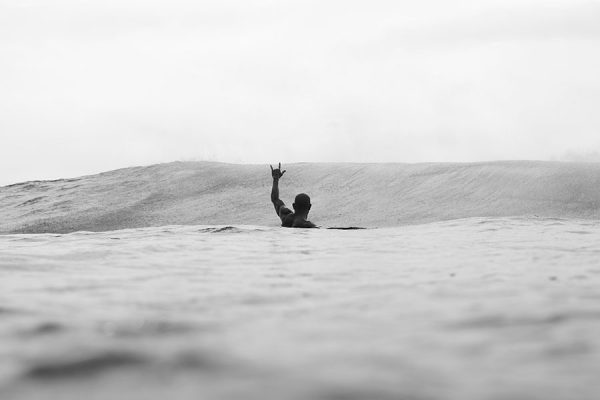
Photo: Todd Glaser
TS: Do you believe if you put positive vibes out, that it comes back?
KS: So many good things have come my way because, at some point in my life, I did have a positive interaction with somebody. And you know, also I’m sure that things didn’t happen for me because maybe I was in a negative headspace around somebody who maybe at some point would have wanted to do something fun or cool with me or invite me somewhere that was exciting, you know?
I think when you’re putting out negativity, sometimes you just don’t realize what could have been—what could have been good. And other times, it brings something negative in your life. But when you’re positive, when you’re happy and supporting other people and completely being open about things, I feel that’s inviting for positive things [to happen].
TS: To me, that’s a perfect example of being and living young. Older people feel like they’re grumpy and sort of close-minded.
KS: Yeah. I’m getting that way when I surf a lot.
TS: Do you feel pressure for all your fans that are in your same age group to keep performing at a certain level?
KS: I don’t know if pressure is the right word. Maybe obligation is the right word? I don’t really know. I definitely feel a sense of interest and excitement from people that are my same age—within five years of me either way. I think typically somewhere in your 30s—generally your mid-30s or late-30s—people feel like they gave up on their body or on their career. I’m finding now with where I’m at, at 45, there are so many people who have done that.
In your 20s, things are so exciting. In your 30s, they’re so patterned. It’s hard to get a new point of view or perspective on things when things are mundane to you and you’ve been doing the same thing over and over for so long. There’s nothing more exciting in the world to me than surfing, but god, I get so freaking bored surfing the tour sometimes because I’ve done it for so long.
When I go to Fiji, I just feel like this ‘I can live here forever. I could stay here for the rest of my life and be happy.’
I think that’s why—you mentioned getting older or grumpy—that’s why people end up that way. Because their pattern is the same, so their experience doesn’t change. And I find that sad when it happens to me.
TS: That’s exactly the whole theory of this thing—how you seem to reset yourself to keep that (excitement) up; because most people don’t and it’s amazing that you’re able to.
KS: I definitely need to get better at it, but I know that it’s there for the taking. I definitely don’t plan to always do that properly, but I try.
TS: Where’s your fountain of youth?
KS: Gosh, good question. I’m not sure because sometimes it just feels like a place you might go. When I go to Fiji, I just feel like this “I can live here forever. I could stay here for the rest of my life and be happy.” Just surf and, when the waves aren’t good, relax, fish, dive, take some time to just land. And then when the waves are good, jump in head first all day until I fall over at night.
But I don’t know that there’s like a magical fountain of youth anywhere. I think it’s in your mind. I’ve told this story a couple of times, but Damien Hobgood was in Portugal with his family a few years back when his daughter was young. And his daughter said to Damien’s wife, “Mommy are we home?” And she goes, “No, we’re in Portugal.” And the daughter replied, “But are we are home?” And her mom said, “No, we’re in Europe. Like, we’re in Portugal, we’re not going home for two weeks.” And the daughter replied, “Yeah, but, me, you and dad and my brother are all here, so aren’t we home?”
I thought that was such a great metaphor for life because as long as we’re together, we’re home. So my answer would be, I think, the fountain of youth is feeling like you’re home wherever you are, and you have the tools to feel comfortable in your own skin.
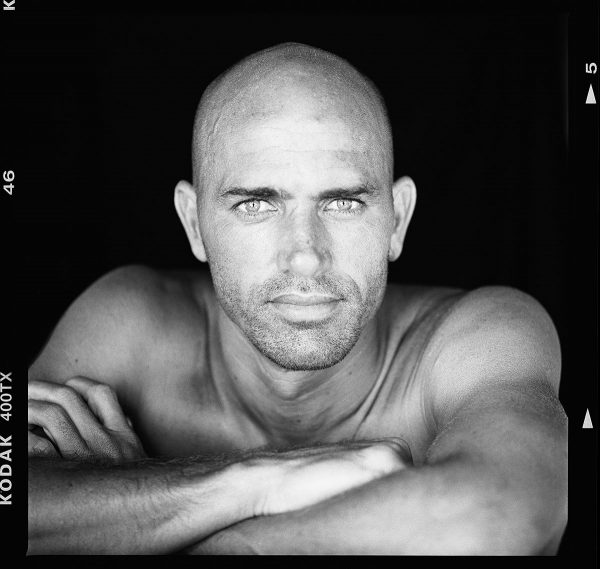
Photo: Todd Glaser
TS: Does the ocean make you feel at home wherever you are?
KS: I guess the ocean connects me to all things good. The ocean would be my fountain of youth because, when I think back to when I was a kid, it was definitely my solace and my place to feel like nothing else mattered. I experienced it in my own way. And that was probably unique to me, as it is for everybody. But it was the one place where I felt totally at home all the time.
Interview as featured in the 2017 Water Issue of Whalebone Magazine, out now. Thank you Taylor, Kelly and Todd.

